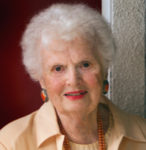By Natasha Josefowitz, ACSW, PhD

LA JOLLA, California — I do it; all my friends do it; everyone I know does it. “We all say “yes,” “OK,” “I’ll do it,” when we don’t want to. It can be a favor for a friend, additional work for an employer, a helping hand to a co-worker, an errand for a relative, a committee we don’t want to sit on, a fundraiser we don’t want to attend. Why do we say “yes” when we really mean “no”? Do women do it more often than men? I believe they do.
After I have said, “yes,” agreed, committed myself, I often regret it. By then, it’s too late. If it is hard to say “no,” it is ten times harder to say, “I’ve changed my mind.” Often it does not seem like such a burden at the time. Many of us underestimate the time it will take to fulfill the added responsibility, or the deadline is weeks or even months away. I frequently agree to write a lengthy article or to give a talk due next year. But then that inexorable date arrives, and I’m frantically trying to fit it in with everything else I have to do.
Another reason is that it feels better at the moment to say “yes” to someone than to say “no.” None of us likes to disappoint. And this is perhaps where the gender difference comes in; women generally are more attuned to the needs of others, more consciously dependent on relationships. Some of us have been—and at times still are—people pleasers. Rejecting a request feels like rejecting the person making the request, and we don’t want to offend and possibly lose a friendship.
When friends lend me books they just read and loved, how can I refuse such a warm gesture? So I accept the offer to read it in order not to offend. But I am already 10 books behind. The book sits on my desk, and I cannot find the time to read it. When my friend asks me how I liked the book, I feel guilty admitting that I have not started it.
Yet as I age, more and more often I have said, “no, I can’t” to requests for my presence, my help with a project, to accept an invitation to a party, or to buy a ticket to some event. But why do we feel badly about saying “no” when all we’re doing is protecting ourselves?
There is a part of us that feels happy about being asked to help or invited to go somewhere. One of the best gifts seniors can receive is to still feel useful, counted, and included. This makes it hard to deny ourselves that privilege by not accepting.
Another reason is that women are either genetically programmed to be more nurturing or have been brought up to be more giving. That being the case, it is not surprising that when asked to extend themselves, they tend to do it. We have been taught to think of others first and thus are quick to respond when we hear a plea for help.
We tend to say “yes” more often to people we like, to people in power, to people with whom we have a reciprocal relationship. We also tend to help out people we feel sorry for, those who can’t fend for themselves. The issue then is how real are our feelings of responsibility? Are we taking on too much? Is it a burden that can be shared?
Now, I am not saying we never should respond to others. I like that nurturing side of people. I like it in me. It becomes an issue and a burden, however, when it is not what we really want to do, when we pay too high a price for it. It is important to ascertain how much time and energy would have to be expanded. We accept requests when we assume a negative reaction to our refusal. It may be this unfounded fear that stops us from standing up for ourselves. We also need to ask ourselves: “Suppose we get a negative reaction. How much would it matter? Enough to influence our response?”
As there are fewer years left ahead of us than years already lived, it becomes even more crucial to not waste what remaining time may be left. It is okay to become more selfish with one’s time and not give it away too freely. Time increasingly becomes our most precious commodity.
*
© Natasha Josefowitz. This article appeared initially in the La Jolla Village News. You may access her other works by clicking on her byline at the top of this page. You may comment to natasha.josefowitz@sdjewishworld.com
Thank you, Natasha! At times it seems you are reading my thoughts and know just what to write to become the catalyst to help me make changes in my life. I agree with you that women are more likely to verbalize “Why, yes, I’d love to” even when their minds are clearly shouting “No, I don’t have the time!”
I am always so happy to find your name listed in the SDJewish World’s Daily News Summary; I know I’ll find a literary feast and learn a few things.
Thanks again,
Your fan,
Karla